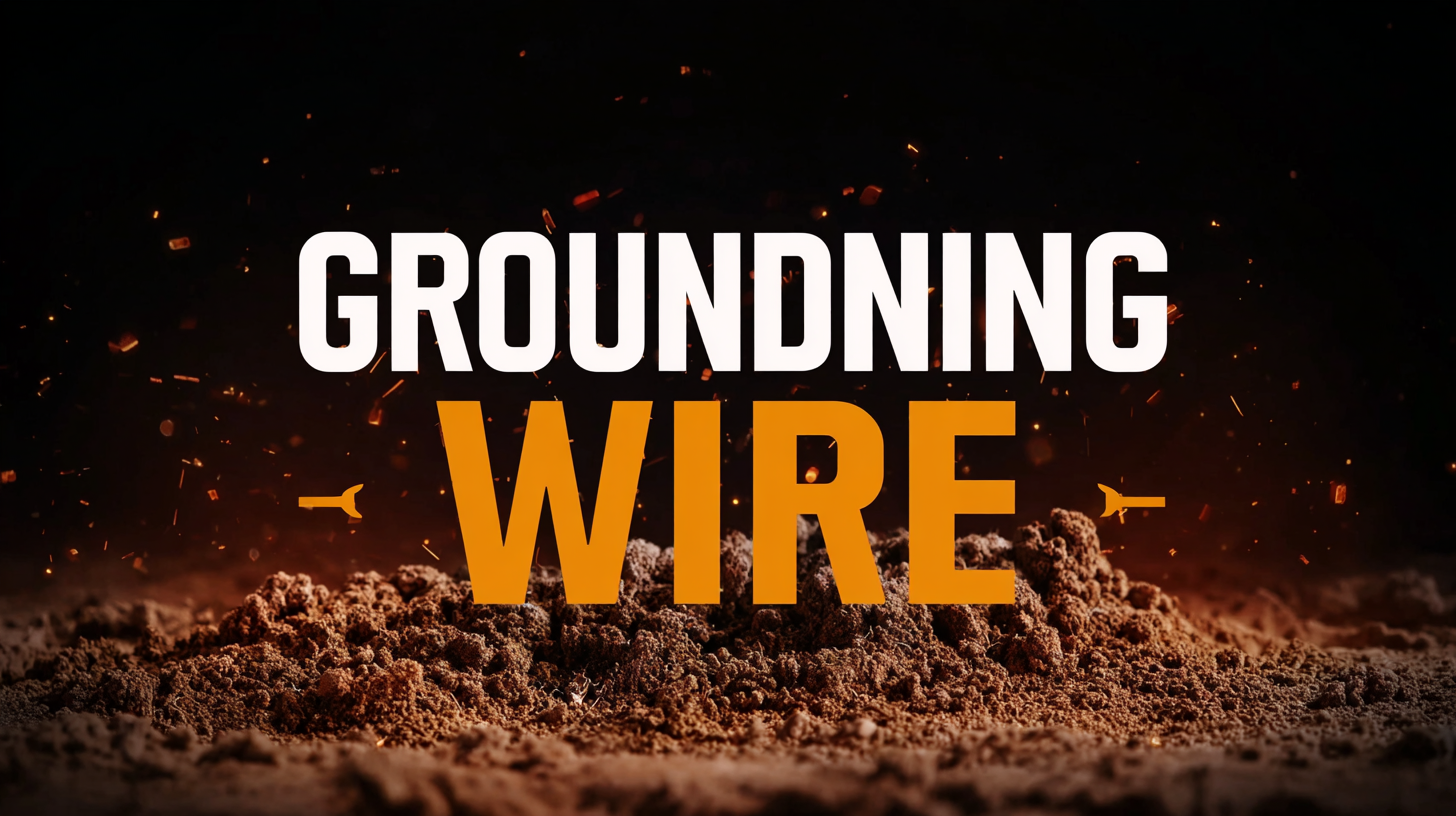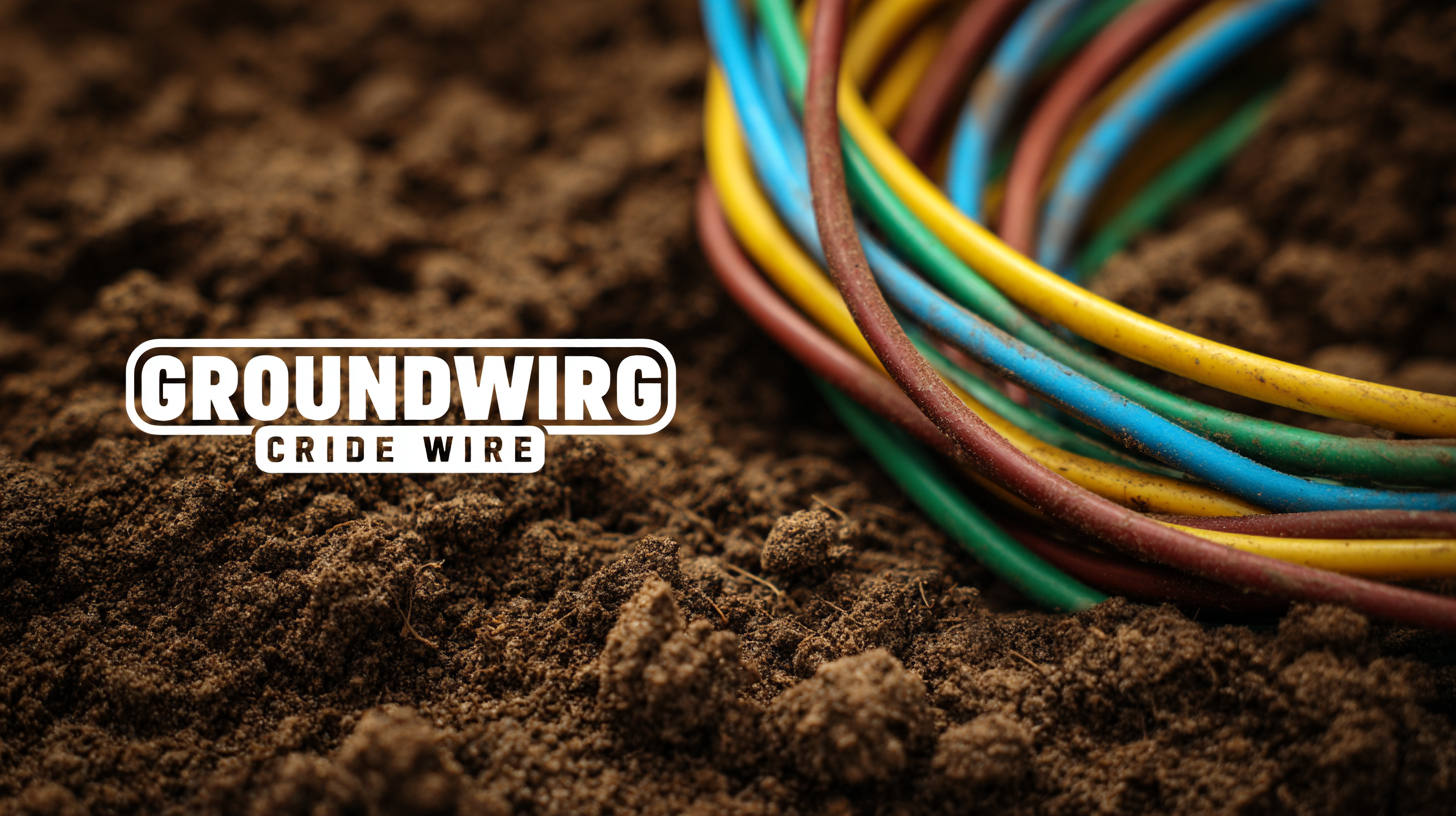The Complete Guide to Choosing the Best Grounding Wire for Your Needs
In the ever-evolving landscape of electrical safety, the significance of selecting the right grounding wire cannot be overstated. As we approach the technology trends of 2025, industry reports show that proper grounding practices are essential for both residential and commercial installations, with over 30% of electrical failures attributed to inadequate grounding systems. The National Fire Protection Association (NFPA) emphasizes that effective grounding can prevent potential hazards like electrical shock and fire, making it a critical component in modern electrical setups. As technology advances, including the rise of smart home devices and renewable energy systems, understanding how to choose the best grounding wire tailored to specific needs becomes paramount. This comprehensive guide will equip you with the knowledge to navigate your options, ensuring safety and efficiency in your electrical systems.

Types of Grounding Wires: An Overview of Options Available
When selecting grounding wires, it's essential to understand the various options available to suit different applications. Grounding wires come in several types, each designed for specific environments and requirements. The National Electrical Code (NEC) outlines minimum requirements, indicating that copper grounding wire is a popular choice due to its excellent conductivity and durability. In residential settings, a common gauge used is 6 AWG for grounding, which can effectively handle electrical surges and provide safety against faults.
Another significant type is aluminum grounding wire, which is lighter and more cost-effective than copper but requires careful handling and specific conditions to ensure optimal performance. According to a report by the Electrical Safety Foundation International, improper grounding can account for nearly 23% of electrical accidents, emphasizing the importance of using the right type of grounding wire. For industrial applications, stainless steel grounding wire is often preferred due to its corrosion resistance and ability to maintain integrity in harsh environments, ensuring long-term reliability and safety.
Understanding the differences between these grounding wire types is crucial for professionals in the field. By selecting the appropriate grounding wire, it enhances not only the electrical safety of a system but also its overall efficiency.

Key Factors to Consider When Selecting Grounding Wire
When selecting the best grounding wire for your needs, there are several key factors to consider to ensure safety and efficiency. First and foremost, the wire's material plays a crucial role in conductivity and durability. Copper grounding wires are known for their superior conductivity and resistance to corrosion, while aluminum wires are lighter and more cost-effective, though they may require larger diameters for the same level of conductivity. It's essential to assess your specific requirements, including the environment and potential exposure to elements, before making a choice.

Another important aspect to consider is the wire gauge, which determines the wire's current-carrying capacity. Lower gauge numbers indicate thicker wires, which can handle higher currents and provide better grounding performance. It is also vital to consider local electrical codes and regulations, as they may dictate specific requirements for grounding wire choices in your area. Selecting the right grounding wire not only enhances safety by preventing electrical shocks but also improves the overall efficiency of your electrical system.
Comparative Analysis: Copper vs. Aluminum Grounding Wires
When choosing the best grounding wire for your needs, a comparative analysis of copper and aluminum wires highlights significant differences in properties and applications. Copper, known for its superior conductivity, boasts a thermal conductivity of approximately 390 W/m·K, which makes it ideal for high-efficiency electrical systems. In contrast, aluminum, while having lower conductivity (around 205 W/m·K), offers a much lighter solution, making it preferable for overhead power lines where weight is a critical factor.
Tips for selecting the right grounding wire include considering the specific application and environment. For installations in systems that require high conductivity and performance, copper is the top choice despite its higher cost. However, if budget constraints exist or weight reduction is essential, aluminum could be the practical option, especially in residential and commercial building applications.
Additionally, it’s essential to take into account the potential for metallic corrosion. In environments with high moisture or chemical exposure, protective coatings on aluminum may be necessary to prolong its lifespan and maintain effectiveness. Always assess the local climate and the specific demands of your installation when selecting grounding materials.
Evaluating the Best Grounding Wire for Different Applications
When evaluating the best grounding wire for different applications, it's essential to understand the specific requirements that various scenarios demand. For residential wiring, most electricians recommend using copper or aluminum wires that comply with local electrical codes. Copper wires are favored for their superior conductivity and corrosion resistance, making them ideal for grounding in homes where safety and reliability are paramount. Meanwhile, aluminum is a lighter and more cost-effective option but requires careful installation to prevent potential issues like oxidation.
In industrial settings, grounding wires must cater to the heavier electrical loads and harsher environments. Here, a larger gauge of copper or specialized coated wires is often used to ensure durability and enhanced performance. For applications involving sensitive electronic equipment, such as data centers or telecommunications, employing multi-strand wires can provide increased flexibility and resistance to interference. By assessing the specific needs of each application, one can select the most suitable grounding wire to ensure effective fault protection and system stability.
Cost vs. Performance: How to Choose Wisely for Your Needs
When selecting the best grounding wire for your needs, it's essential to weigh the cost against performance carefully. The nuances of this choice can significantly impact the efficiency and safety of your electrical systems. According to industry data, the selection of wire can directly affect energy loss; for instance, using a higher gauge wire may incur additional upfront costs but can lead to lower losses and enhanced durability, ultimately saving money in the long run.
Amid rising concerns in various sectors, including financial investments, it’s essential to stay informed and make decisions grounded in reliable data. Similar to how investors are advised to navigate SIPs thoughtfully in mutual funds, choosing the right grounding wire necessitates an understanding of the technical specifications and potential trade-offs. A report published by the National Electrical Contractors Association highlights that using quality materials in grounding systems not only enhances safety but also reduces maintenance costs associated with failures, reinforcing the need for judicious decision-making in both investment and infrastructure choices.
